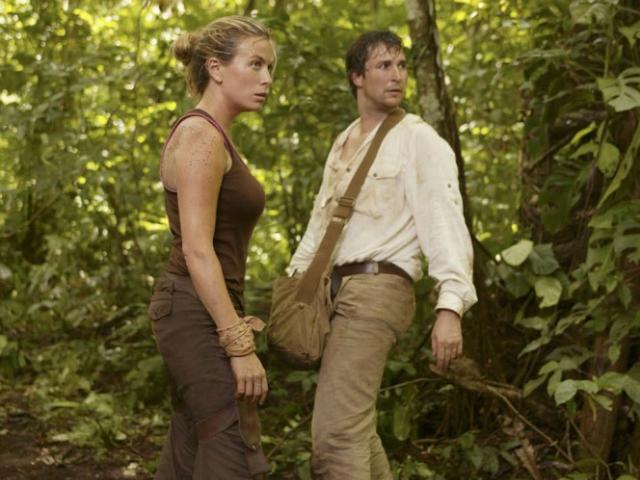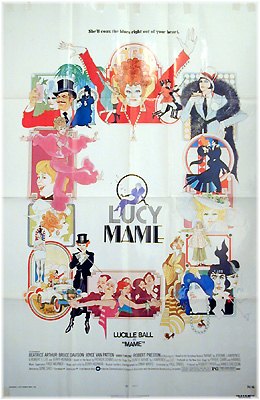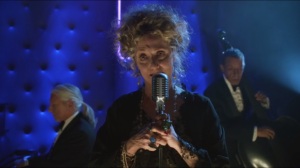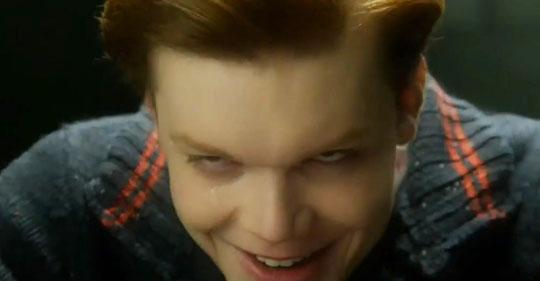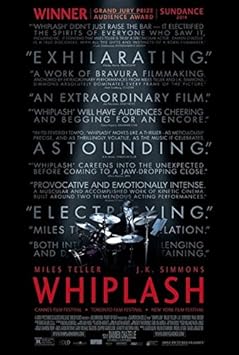 |
Julianne Moore:
Best Actress for Still Alice |
TUESDAYS WITH OSCAR
LATE EDITION
PART 1: 2015
The 87th Academy Awards went pretty much like they were expected to. Most of the winners were predestined after the lengthy award season, with only three being a two-horse competition. We had our share of predictable politicizing of the event (seriously, can we ever get away from rich white women lecturing the rest of us about how they aren't paid enough), and some remarkably moving moments.
Unlike other years I won't submit an alternate list merely because I haven't completed it (hence the Part 1), but I'll get around to it...eventually. This year we had all four acting winners be first-time winners and only one was not a first-time nominee. We also had no acting winners for the Best Picture and all four acting winners came from four different films. We also had two films 'dominate' with four Oscars each (
Birdman and
The Grand Budapest Hotel) and only one other scoring more than one Oscar (
Whiplash's three). Every other film snagged only one Oscar, despite having multiple nominations.
BEST SUPPORTING ACTRESS
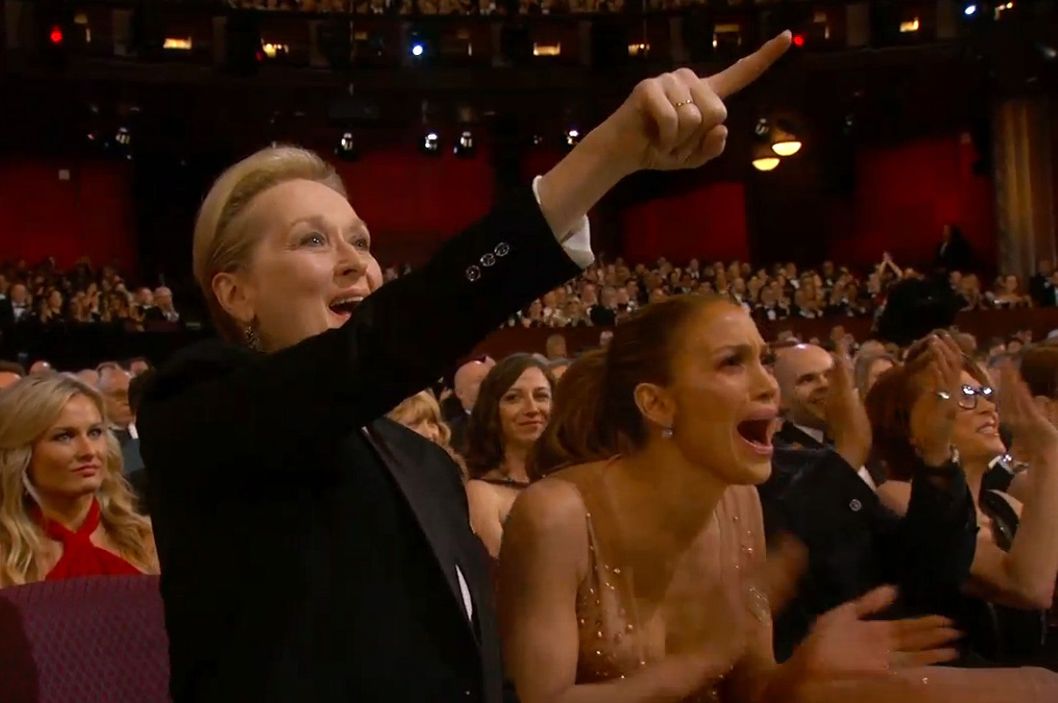 |
| We Want A Raise! |
Patricia Arquette (Boyhood)
Laura Dern (
Wild)
Keira Knightley (
The Imitation Game)
Emma Stone (
Birdman)
Meryl Streep (
Into the Woods)
Poor Meryl. She can't make it on $10 million dollars.
According to Forbes Magazine, this is her estimated earnings as of June 2014. If IMDB is to be believed, her work in
Into the Woods earned her a mere $1,500,000. I will have a Master's (God-willing) by the end of the year, and I'm a man. However, I don't think I will make $1,500,000 for five month's work (from rehearsals to completion). Yet there she and J. Lo (she of the numerous financial/critical bombs and the $17,500,000 salary for the sinking
American Idol) were, cheering Arquette on as the winner went all Vanessa Redgrave on us to tell us there needs to be wage equality.
I should remind Jenny From the Block that she made $12,000,000 for
Gigli.
If she were fair, she'd give that money to everyone who paid to watch her turd of a film. NO ONE DESERVES $12,000,000 for something like
Gigli...except the audience.
The obvious question is, 'are these people crazy or merely stupid?' ALL the top nominees get
a gift bag valued at $168,000. Again, let me remind the underpaid Streep, Lopez, and Arquette, those gift bags are more than my ANNUAL salary (currently at $19,000...and that's considering I got a raise this year). You get some astrology sessions, Italian vacations, and a choo-choo ride through the mountains.
I take Greyhound and Southwest when I can afford the luxury.
The little swag bag you all took home is the equivalent of about
NINE BLOODY YEARS SALARY FOR ME!!! And you still think you don't get paid ENOUGH?!
Now, in fairness to Arquette, the more I think on it the more I think she has a point. Women are underpaid...in Hollywood. It was revealed that Jennifer Lawrence and Amy Adams
made less money than their male costars in
American Hustle (no irony there). I would argue that Arquette should take the plank from Hollywood's eye before dealing with the speck in America's. I tweeted to her saying that "Physicians, heal thyself", to which I don't expect a reply (and realize it is grammatically incorrect, but there it is). However, while Arquette I think is on the right track (wage disparity in the entertainment industry) she went about it the wrong way by suggesting it is a nationwide problem.
No, Patty, it's a Hollywood problem. And don't get me started on how Hollywood is really a very racist industry.
#OscarsSoWhite...
BEST SUPPORTING ACTOR
 |
| Let It Go, Let It Go... |
Robert Duvall (
The Judge)
Ethan Hawke (
Boyhood)
Edward Norton (
Birdman)
Mark Ruffalo (
Foxcatcher)
J.K. Simmons (Whiplash)
No surprise here, and a well-deserved Oscar for Simmons' titanic performance as the sadistic music instructor. Here though, we saw why Neal Patrick Harris, host
du jour, has been getting mixed reviews for what many people thought would be a slam-dunk.
As part of a boring running gag about his 'predictions bag', he asked Oscar winner Octavia Spenser to watch the bag. Spenser was game, but then came an odd moment when NPH asked Robert Duvall, who was sitting next to her, to watch her or the bag should she not be able to. Duvall looked uninterested in going along with the gag. At this point, NPH turned to Eddie Redmayne and asked HIM to wake Duvall up in case he dozed off...because of course, that's what all old people do.
Duvall looked like he was close to recreating a scene from
Whiplash and beat the crap out of our jolly fellow. It would have perked up the show to say the least.
BEST ACTRESS
Marion Cotillard (
Two Days, One Night)
Felicity Jones (
The Theory of Everything)
Julianne Moore (Still Alice)
Rosamund Pike (
Gone Girl)
Reese Witherspoon (
Wild)
Again, another sign that our beloved NPH is not infallible (unlike the Pope).
When he made that "with her own spoon" joke, the audiences (in the theater and at home) were left scratching their heads. "What?" It was a frightful pun that crashed almost as bad as when he got David Oyelowo to try a joke that Oyelowo on-air made clear wasn't funny. Oyelowo showed that he is a.) a better actor than Harris, b.) smarter than Harris, c.) a better judge of material than Harris, d.) not as eager to please as Harris, and e.) I think a better host than Harris.
Really that whole bit with Oyelowo was bad, just flat-out bad. Yes, the material was bad, but maybe a little rehearsing would help.
Oh right, Best Actress. Again, two previous winners, two first-time nominees and Moore, the perennial bridesmaid. Not any-Moore. She won, she deserved to win, and I for one am so happy that an extremely talented actress finally got the recognition she deserved.
OK Academy...here's a name for you: Amy Adams.
BEST ACTOR
Steve Carell (
Foxcatcher)
Bradley Cooper (
American Sniper)
Benedict Cumberbatch (
The Imitation Game)
Michael Keaton (
Birdman)
Eddie Redmayne (The Theory of Everything)
The wrong guy won.
The actual winner reminded me of a little boy who just heard they brought ice cream home. The winner I think gave the fourth best (impersonation) of the nominees. Only Michael Scott's turn as Oswald Cobblepot, Sr. I think was worse.
The winner won because he hit the Trifecta of Best Actor Oscar winners.
He is British.
He played a real-life person.
He played a disabled person.
That is how a man wins Oscars. I've written extensively about Oscar's fixation with biopics, and the winner I think knew this.
The winner's name will not be spoke here. The wounds are still too raw to see that two of the three Cs and one K were robbed by that chirping little boy.
Well, the Academy is entitled to a few mistakes. Call this year's Best Actor winner one of their bigger ones.
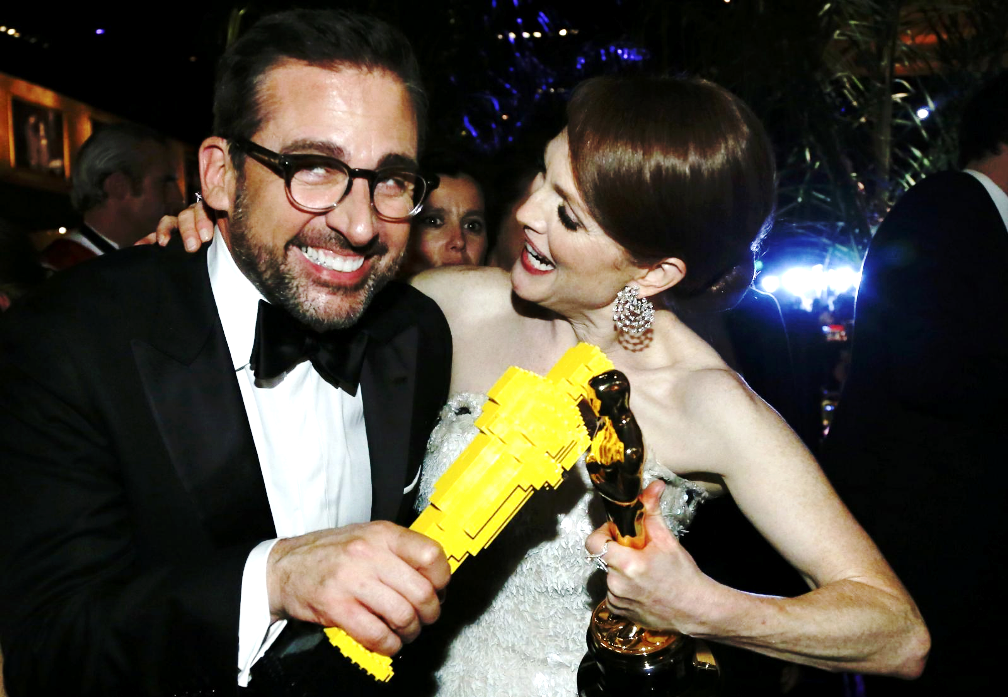 |
| Really Steve, you thought YOU'D win? |
BEST DIRECTOR
Alejandro G. Inarritu (Birdman)
Richard Linklater (
Boyhood)
Bennett Miller (
Foxcatcher)
Wes Anderson (
The Grand Budapest Hotel)
Morten Tyldum (
The Imitation Game)
I sometimes wonder whether the Academy members watch what they nominate. I thought
The Imitation Game was badly structured, and its Best Adapted Screenplay win puzzling. For all the hoopla about Turing's homosexuality his sex life was practically irrelevant to the film. So why go on about 'staying weird'? However, here we saw two things.
Wes Anderson's style of quirk finally getting some love, as his film wins four Oscars (though I think he should have won Original Screenplay over the actual winner) and Linklater being rejected.
Boyhood had six nominations but could get only one win (which was completely expected). I guess twelve years in the making didn't quite make it to the Academy.
BEST PICTURE
American Sniper
Birdman
Boyhood
The Grand Budapest Hotel
The Imitation Game
Selma
The Theory of Everything
Whiplash
It certainly was one for the record books.
Whiplash stunned with a Best Film Editing Oscar for two reasons. One:
Boyhood was the odds-on favorite, and two: the Best Film Editing Oscar and Best Picture usually align. Of course, no one thought
Whiplash had a snowball's chance of winning Best Picture, but this should have been a signal that the Academy had grown tired of
Boyhood. I guess after Hour 15 when the main character was learning to tie his shoe the viewer thought the critical praise was enough.
Then again,
Birdman didn't get a Best Film Editing nomination, and now it becomes the first Best Picture winner to not be nominated for Film Editing since
Ordinary People, thirty four years ago. That's how often Film Editing and Picture went together.
It really was a fight between two films:
Boyhood and
Birdman, which is a bit of a shame because
Selma,
The Grand Budapest Hotel,
Whiplash, and
American Sniper I think were all better.
The Imitation Game was not bad but nothing I was crazy about, and I detested
The Theory of Everything. Why these two films were the frontrunners I don't know. I can't bring myself to watch
Boyhood. Maybe it's as good as everyone says, but seeing three hours of a boy's life seems like torture.
Birdman was well-crafted, but I thought rather weird. It's too soon to say whether either will be up there with
Casablanca or
Lawrence of Arabia or will be more
Around the World in 80 Days and
Cavalcade, but I can't imagine people flocking to see either the way they do the first two.
 |
| NPH shows us why #OscarsSoWhite... |
As for the host himself, bless Doogie Howser. He tried his best, but he wasn't as perky and gleefully impish as he usually is with either the Emmys or Tonys. I think it has to do with the fact that he is a television and Broadway star, but not a major film draw. This isn't like Ellen DeGeneres, whom people see every day. This isn't though, as bad as Seth MacFarlane, whom we never see on television and who lived out his fantasy of doing a live-action
Family Guy.
I'm not going to pile on NPH for making a dress joke after Dana Perry, Best Documentary Short winner for
Crisis Hotline: Veterans Press 1, mentions her son who committed suicide. He just wasn't listening to the winners of these "second-tier" categories. Instead, I figure he was backstage trying to come up with some quip with his scribes and totally ignore what was going on onstage. As such, as she was honoring her dead child, he was focusing on mocking her wardrobe. Here was someone discussing the very serious issue of suicide, both of veterans and her own son, and the only thing he thinks of is her rather questionable dress?
Really, Barney...
I imagine this does suggest NPH wasn't really involved in the proceedings. He wasn't fully engaged, and this is why I think he was a bit off his game. He tried to tell bad jokes and terrible puns which would have embarrassed a Borscht Belt comic, and he left the theater at times silent (and I figure in Robert Duvall's case, groaning).
Apart from the
Moving Pictures number (which was the way Oscar opening numbers should be: short and well-crafted) and Lady Gaga's amazing
Sound of Music medley (which I figure must have shocked millions into remembering she can actually sing), can anyone really remember anything
good about Harris' hosting?
Again it wasn't disastrous like James Franco/Anne Hathaway, but if he wants to come back, he might want to up his improvisation skills. I for one believe in redemption, so I wouldn't object if NPH wanted to give it another crack.
Can't be as bad as his Predictions Gag.


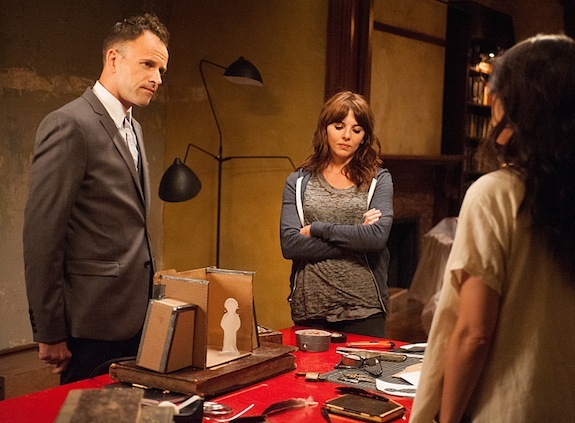

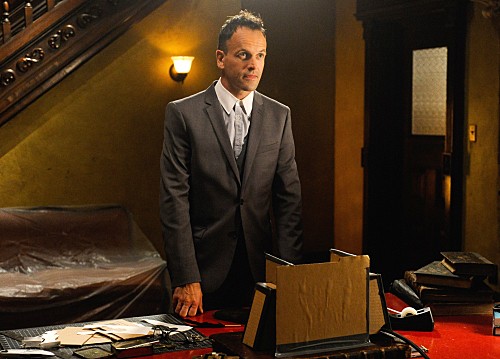






.jpg)

